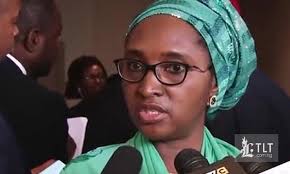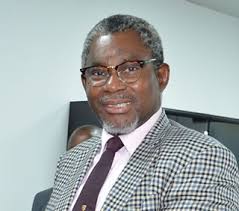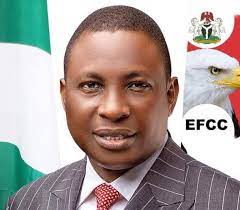Despite warnings by multilateral financial institutions and debt management experts, the Federal Government, on Sunday insisted it would approach the international financial market to raise about $2.8 billion in Eurobond to fund the 2018 capital budget.
The Finance Minister, Zainab Ahmed, who confirmed this at the closing session of the IMF/World Bank annual meetings in Bali, Indonesia, said that the country could still borrow to meet its critical funding obligations with the current total debt stock remaining at three per cent of GDP.
She assured that in borrowing more, the government would be guided strictly by the 2018 budget framework and the approved targets.
The minister clarified: “The upcoming bonds that we are trying to raise would be within the 2018 budget framework and within approved targets. So we are not going beyond what was approved in the budget.
“The budget has approval for us to borrow both locally and internationally and we have a bond issuance within the range of $2.8 billion that we need to raise before this year closes out. That will be used to finance capital projects in the 2018 budget,” Ahmed said.
According to her, Nigeria’s challenge at the moment is not about the size of her debt stock, but about her inadequate non-oil revenue collection which needed to be increased to reduce pressure on government in funding critical capital projects and implementing programmes targeted at improving the socio-economic well-being of millions of ordinary Nigerians.
Ahmed clarified: “What we have is a revenue problem and that means we need to work harder to increase our revenue to ease our debt service obligations. So we have to enhance our domestic revenue mobilisation so that we can ease the debt service burden that we now carry.
“We have a lot of headroom to borrow, but we are not rushing to borrow more because we have to consider the foreign debt service obligations that we carry now,” she added.
Commenting on whether or not it is desirable for Federal Government to build up stronger financial and fiscal buffers to guard against sudden global financial shocks as advised by the IMF and other experts, the minister argued that what the country needed now was the need to spend more on critical sectors in order to sustain the recovery on the economy rather than building buffers to mitigate shocks
She said: “So as a country, both at the federal and state levels, we have to look at how to save more and how to invest more in critical infrastructure that will yield revenue. And that was what came across throughout the meetings with the World Bank and the IMF, that all countries, not just Africa but globally need to build more fiscal buffers.”



